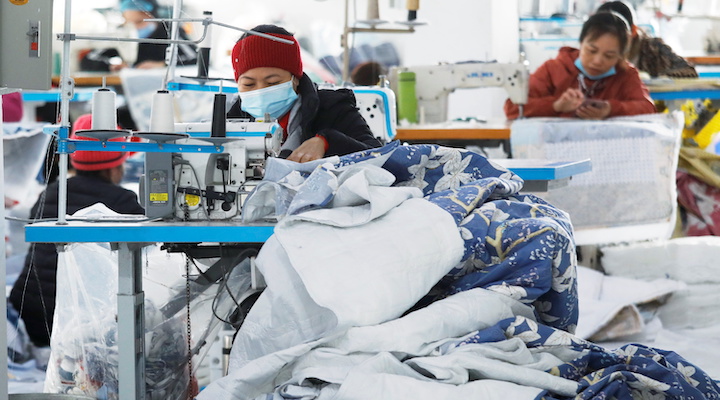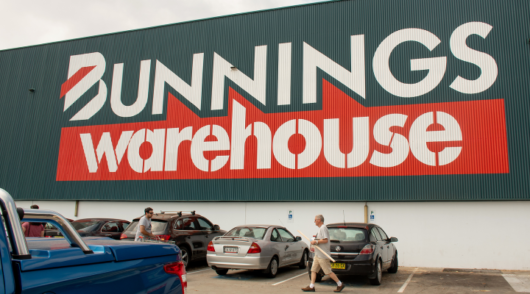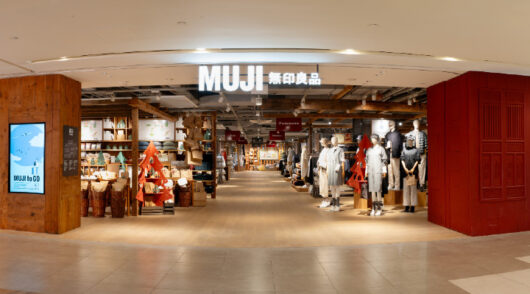Vietnamese factories making everything from shoes to smartphones are expected to continue production despite record Covid-19 infections, reversing a policy of sweeping lockdowns last year that hobbled global supply chains for Western retailers.
One of the world’s biggest garment makers, Vietnam reported more than 26,000 new infections on Sunday, or about double the peak last year, when factories supplying brands such as Nike, Zara, Apple and Samsung were shut for months.
But unlike nine months ago, when the Delta variant was spreading through a mostly unvaccinated population, now millions of factory workers have been fully vaccinated and the Omicron variant is proving less severe, the government said.
“The risk of widespread lockdowns is very low this year as Vietnam has successfully carried out its Covid-19 vaccination campaign,” Dang Duc Anh, director of the National Institute of Hygiene and Epidemiology, told Reuters.
Vietnam has been relaxing curbs in recent months, with schools re-opening last week and the government saying on Sunday it would lift restrictions on arriving international passenger flights.
More than 76 per cent of the population has received at least two vaccine doses, up from 3.3 per cent early in September last year, the health ministry says.
The American Chamber of Commerce in Hanoi, which represents U.S. businesses and last year urged the government to ease its curbs, is anticipating a better 2022, said Adam Sitkoff, its executive director.
“I do not expect to see additional countrywide lockdowns as serious cases in most parts of the country are at a manageable level and the authorities have learned that economy-crippling restrictions are not sustainable,” Sitkoff told Reuters.
The government is targeting economic growth of 6 per cent to 6.5 per cent this year, up from 2.5 per cent in 2021.
Smooth factory operations in Vietnam, the second biggest exporter of clothes and footwear to the United States after China, will also help free up supply chain bottlenecks that are pushing up inflation around the world.
“If Vietnam can maintain a strong production capability and factory output, this will really support the global supply chain, in particular for sectors like agriculture, textiles and electronics consumers,” said Duc Minh Nguyen, a partner at accounting firm EY.
SHIFTING SUPPLY CHAINS
Over the last decade Vietnam has emerged as one of the most attractive alternative production hubs for companies looking to reduce their exposure to China.
That trend is expected to continue, if Vietnam can emerge relatively unscathed from the current Omicron wave and Beijing keeps up its tough lockdowns to suppress infection.
“Vietnam will be a key beneficiary of shifting supply chains, particularly in regards to low value-add manufacturing relocating out of China and electronics,” said Raphael Mok, head of Asia country risk for Fitch Solutions.
Vietnam won praise early in the pandemic for curbing infections with its tight controls, but a flare-up last summer caused by the Delta variant kept millions of workers at home amid lockdowns in Ho Chi Minh City and neighbouring industrial provinces.
In September, at the height of the lockdowns, businesses began considering moving production elsewhere.
Lululemon, a Canadian clothing retailer, shifted production out of Vietnam in September. Nike, which sources half its footwear from the southeast Asian nation, cut its 2022 sales forecast due to factory closures there.
Now, 90 per cent to 95 per cent of garment and textile workers have returned to work after the Lunar New Year holiday, said Truong Van Cam, deputy chairman and general secretary of the Vietnam Textile and Apparel Association.
Vietnam’s factory workers, who earn on average $330 per month, are hoping to make up for earnings lost last year.
“Things are pretty smooth now … there are many orders that need delivering so we can work overtime to earn more,” said Nguyen Van Hoang, 28, who works at a leather factory in Ho Chi Minh City.
“I don’t think factory lockdowns will become a thing in the future.”
Ninh Thi Ty, chairwoman of Ho Guom Group, which makes garments for firms such as CK, Mango, Zara and H&M, said she expected the government would soon designate Covid-19 an endemic illness.
“More lockdowns would hurt businesses like ours, as we wouldn’t be able to deliver products to customers,” said Ty, whose garment factories employ 6,000 workers in Vietnam.
- Reporting by Khanh Vu and Phuong Nguyen; Writing by Joe Brock; Editing by Clarence Fernandez, of Reuters.






